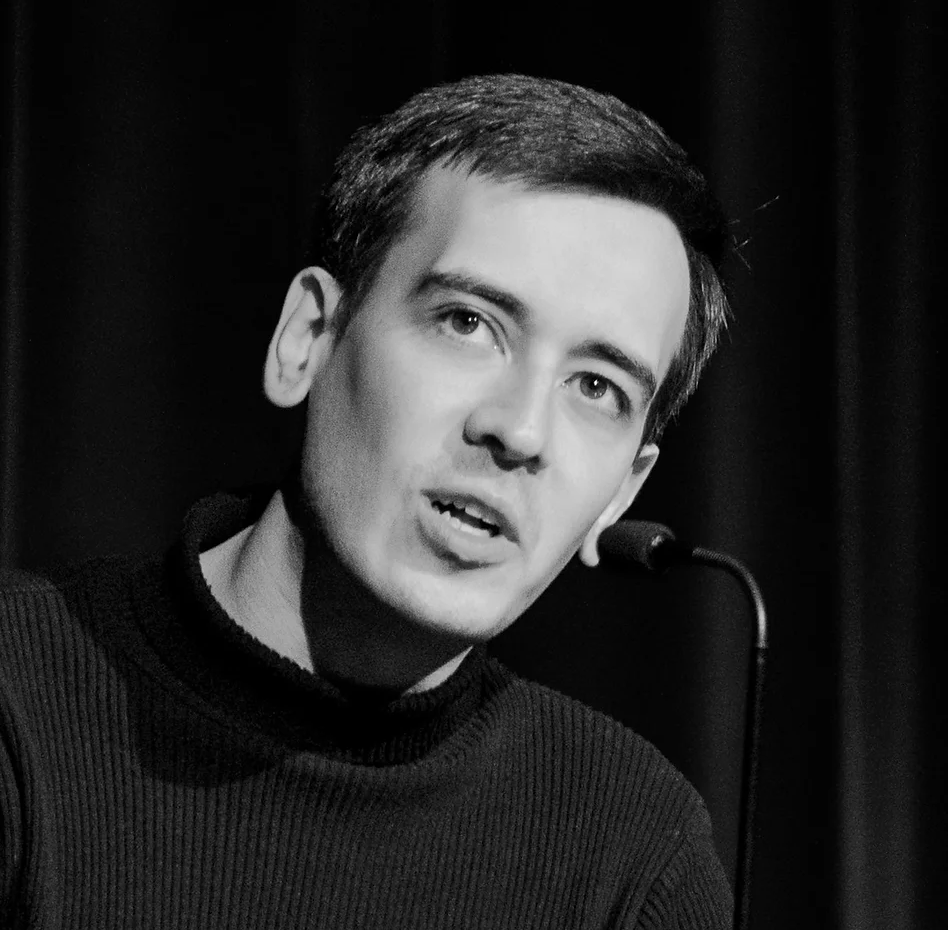The keystone of the censorship industry’s branding operation is its claim to be is non-partisan. It doesn’t censor particular viewpoints – it censors “disinformation.” It doesn’t persecute its political opponents – it monitors “extremists.” It doesn’t interfere in elections on behalf of particular parties or candidates – it simply defends “election integrity.”
Every major censorship organization makes some claim to this effect.
From the Election Integrity Partnership’s website:
The Election Integrity Partnership was founded in 2020 as a non-partisan coalition to empower the research community, election officials, government agencies, civil society organizations, social media platforms, and others to defend our elections against those who seek to undermine them by exploiting weaknesses in the online information environment.
NewsGuard’s apolitical and transparent criteria have been applied by its analysts to rate news sources accounting for 95% of online engagement with news across nine countries.
The Center on Democracy and Technology:
The Center for Democracy & Technology (CDT) is the leading nonpartisan, nonprofit organization fighting to advance civil rights and civil liberties in the digital age.
The Atlantic Council, home to the Digital Forensics Research Lab:
Driven by our mission of “shaping the global future together,” the Atlantic Council is a nonpartisan organization that galvanizes US leadership and engagement in the world, in partnership with allies and partners, to shape solutions to global challenges.
The Algorithmic Transparency Institute:
The Algorithmic Transparency Institute (ATI) is a program of the National Conference on Citizenship (NCoC). NCoC is a non-partisan non-profit dedicated to strengthening civic life in America. ATI is focused on bringing greater transparency to the digital platforms that impact civic discourse. ATI does this by developing tools, collecting data, and supporting analysis that furthers a shared understanding of the role of digital media in the spread of problematic content and other adverse impacts on society.
Common Cause is a nonpartisan, grassroots organization dedicated to upholding the core values of American democracy. We work to create open, honest, and accountable government that serves the public interest; promote equal rights, opportunity, and representation for all; and empower all people to make their voices heard in the political process.
A Clarifying Report
In September 2023, the purportedly non-partisan Center on Democracy and Technology (CDT) produced a report called “Seismic Shifts,” assessing progress and setbacks in the censorship industry. To compile the report, the authors interviewed a range of leading censorship organizations including the Election Integrity Partnership, the Atlantic Council’s Digital Forensics Research Lab, Common Cause, the Anti-Defamation League, and a number of others.
Page 43 of the report notes the benefits of coalition-building in the censorship industry; joining together the vast network of organizations dedicated to suppressing disfavored information to present a common front against “political” foes.
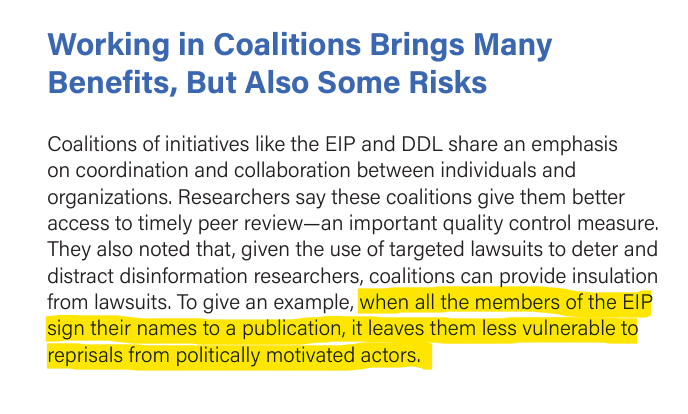
Just a few paragraphs later, the CDT adds a revealing caveat: the larger the coalition, the more likely it is that a member might alter its political orientation, which is a “risk.”
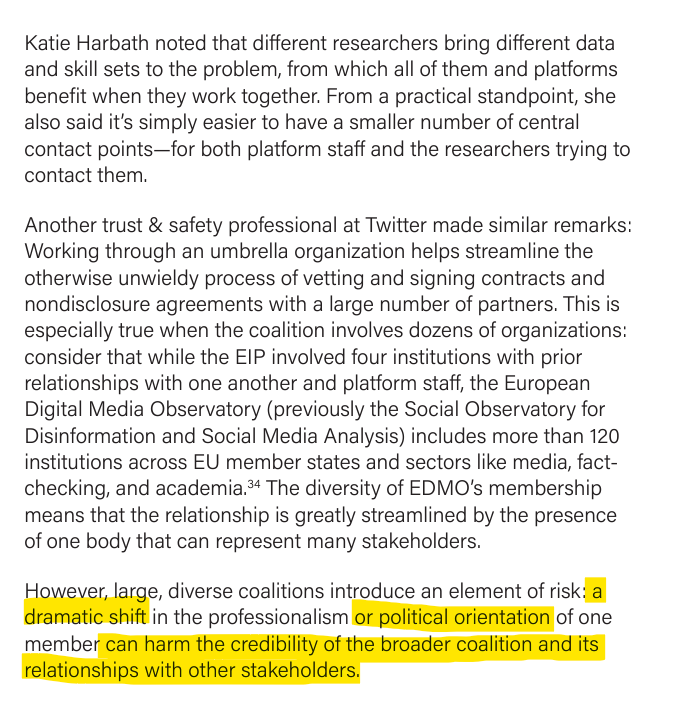
This caveat directly conflicts with the censorship industry’s frequent characterization of itself as politically neutral. If the CDT, the EIP and other censorship organizations are truly non-partisan, then how could a single member shifting its “political orientation” be a risk?
A History of Partisanship
It makes sense if we assume that many of these organizations are not as “non-partisan” as they say they are. This is borne out by the individuals and institutions that censorship industry tends to target.
The Global Disinformation Index (GDI), an organization that builds advertising exclusion lists to financially throttle disfavored websites, exclusively named right-leaning news sources in its top-ten list of news publications most at risk of spreading “disinformation.”
From GDI’s December 2022 “Disinformation Risk Assessment”:
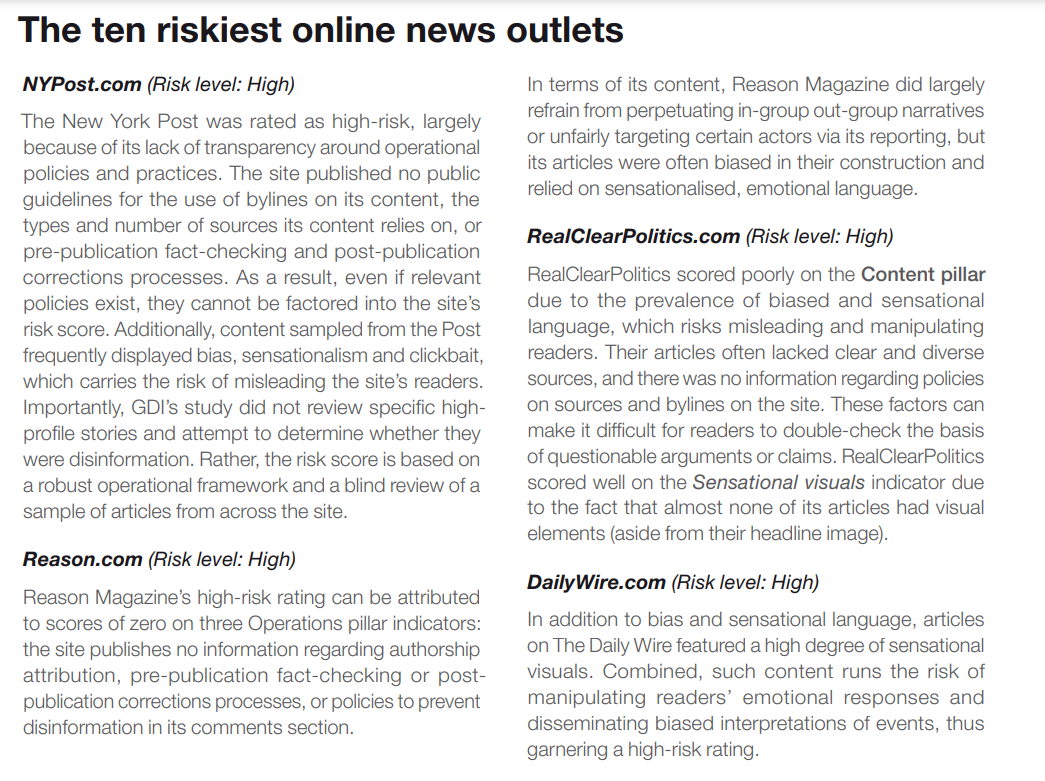
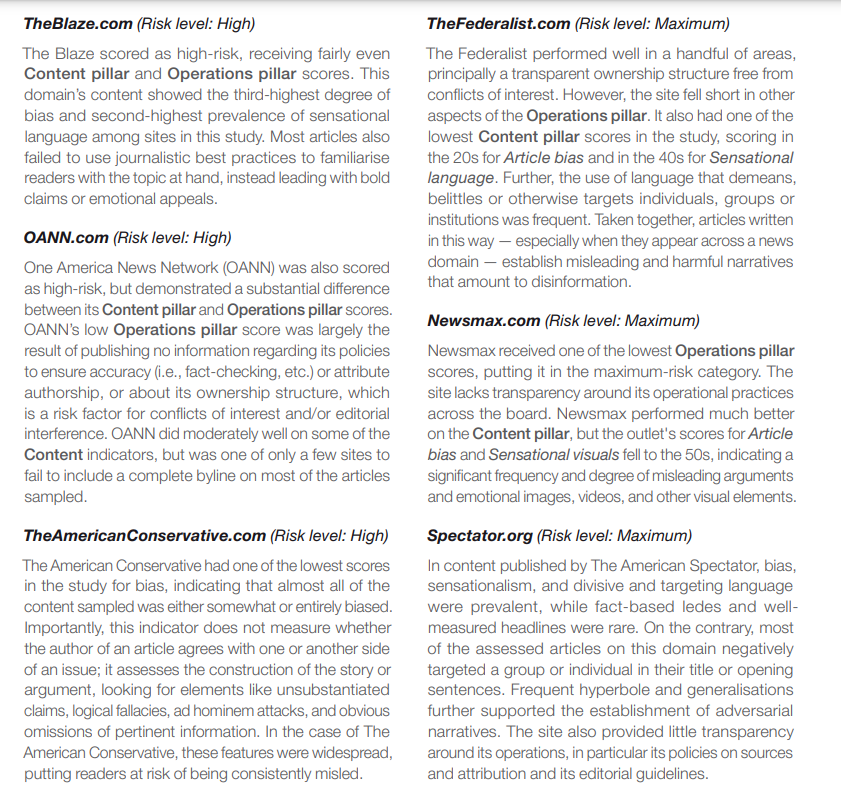
The Election Integrity Partnership (EIP), which played the leading role in censoring online speech during the 2020 election, exclusively named right-leaning sources as “repeat spreaders” of “false or misleading narratives that threatened election integrity.”
From EIP’s first post-election report:
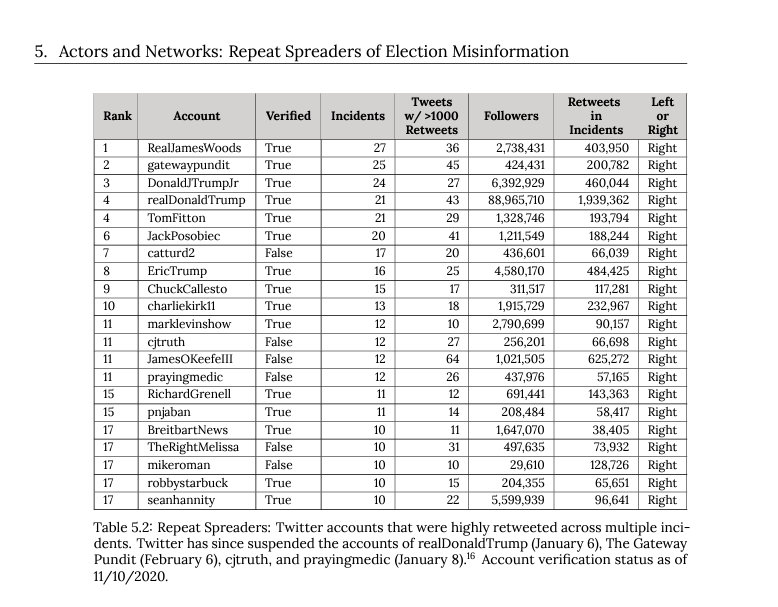
There’s also NewsGuard, another leading enabler of online censorship, which assigns virtually every news site on the Internet (over 35,000 in total) a “news nutrition label” along with a rating of 1 to 100. At least one survey has found that NewsGuard rates right-leaning news websites an average 27 points lower than left-leaning alternatives.
Given that low NewsGuard scores are used as a deliberate pretext to cut disfavored news websites off from access to the global pool of $2.6 billion in programmatic ad revenue, an explicit, stated goal of the company, this disparity in scores tilts the political playing field in favor of one party.
If this evidence of partisanship wasn’t enough, we now have the CDT’s own words: no divergence in the “political orientation” of the censorship industry – even by a lone member of a coalition – is acceptable.

